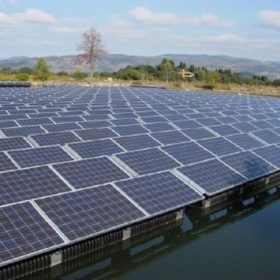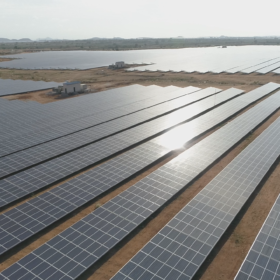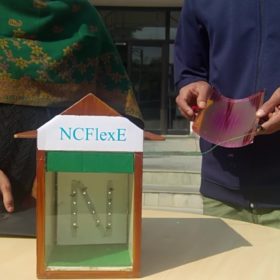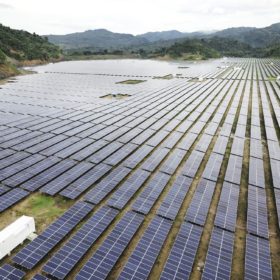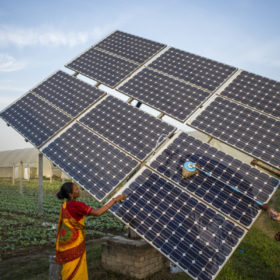NHPC mulling 500 MW floating solar in Telangana
The state-run hydropower producer is in talks with Telangana State Renewable Energy Development Corporation Limited to form a joint venture to explore and develop an aggregate 500 MW of floating solar power projects in the state.
Belectric bags its second 250 MW solar project from Fortum
Germany based Belectric Solar & Battery GmbH has been awarded a 250 MW (AC) solar project by Fortum—this time in Rajasthan.
Gujarat tenders 500 MW of solar
Projects can be established anywhere in the state which has spare grid capacity, with the relevant substations listed on the Gujarat Energy Transmission Corporation website.
Organic solar PV cells on paper substrate for indoor use
Researchers at the Indian Institute of Technology Kanpur (IIT Kanpur) have developed 12×12 cm2 (active area 108 cm2) sub-modules from organic solar PV cells on a paper substrate that could be used to power flexible electronic devices under an indoor lighting environment. The modules are said to deliver a power density of up to 12 µW/cm2 under illumination from a 1000-lux cool‐white light-emitting diode.
Central Electronics tenders for solar cells and modules
State-owned engineer Central Electronics Limited has opened tenders to supply 300,000 multi-crystalline cells, with a minimum rating of 4.57 Wp, and 15 MWp of 72-cell, 315 Wp modules.
American firm ArcVera enters Indian solar market
The Colorado-based firm has set up an office in Bengaluru to deliver consulting and technical expertise to local developers and investors in solar, wind and hybrid projects, including energy storage.
Stable outlook for operating solar projects, new PV at risk
Solar projects under construction face uncertainty as factors like labour shortage and proposed duties on module imports could lead to significant cost overruns for the developers.
Industry leaders pledge near-zero emissions by 2050
Heavy industry players Dalmia Cement (Bharat) and Hindalco are among the companies committed to enhancing energy efficiency, renewable energy, and circular economy across their member companies and supply chains. Other signatories included Siemens Energy India, Thermax, Shell Group of Companies India and Tata Consulting Engineers.
MNRE invites EoI for installation of innovative solar pumps
The innovators will be required to showcase their technologies in real field conditions. The shortlisted ones will be empanelled and allocated sites to install solar pumps under the Pradhan Mantri Kisan Urja Suraksha evem Utthan Mahabhiyan (PM KUSUM) Scheme.
Solar modules sought for NTPC’s Solapur project in Maharashtra
Domestic manufacturers have until October 27 to bid for the supply of crystalline solar modules aggregating to a nominal DC capacity of 33.6 MWp.
